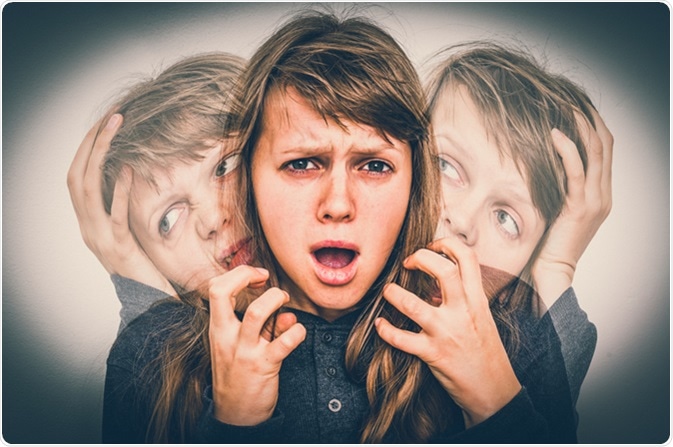What is Charles Bonnet Syndrome?
Charles Bonnet Syndrome (CBS) is a medical condition experienced by people who have deteriorating eyesight wherein they see things or objects that are not real.
The condition is reported to be experienced by up to 34% of persons with visual impairment. CBS occurs most commonly among elderly persons with severe visual impairment, specifically age-related macular impairment.
In medical terminology, this false sense of seeing things is called visual hallucination. In CBS, the visual hallucination is not caused by any drug use or mental illness, but is directly related to gradual loss of vision.

Image Credit: andriano.cz / Shutterstock
What Causes Charles Bonnet Syndrome?
Despite numerous studies on the condition, the actual cause of Charles Bonnet Syndrome is unknown. The visual hallucinations are mainly triggered by loss of vision, and there are several theories about the syndrome. It may be that reduced sensory input allows the brain to create images or that visual information that is filtered in sighted persons more readily enter the consciousness of persons with decreased vision.
Other ophthalmologic conditions associated with CBS include glaucoma, severe myopia, cataract, retinitis pigmentosa, and optic neuritis. Retinal vein occlusion, occipital infarction, and temporal arteritis are also associated with increase occurrence.
What are the Symptoms of Charles Bonnet Syndrome?
CBS occurs in persons with vision loss who experience visual hallucinations. The experience of visual hallucinations differs from other forms or presentations of hallucinations in that they are experienced spontaneously, usually in quiet, familiar environments.
In cases of mental illness or substance abuse, visual hallucinations are triggered using a specific substance or as a reaction to certain stimuli. Drug-dependent persons, for instance, would experience hallucinations upon illicit drug intake. Hallucinations are also common among persons with schizophrenia.
Two types of hallucinations are caused by CBS, simple and complicated. Simple visual hallucinations include lines or patterns and are more abstract in nature. Patients who experience simple hallucinations are generally aware of their hallucination experience.
Complicated visual hallucinations are characterized by more realistic visuals, including persons, familiar environments, and actual objects. This type of hallucination usually presents in individuals with severe vision loss.
Charles Bonnet Syndrome
Features of Hallucinations Caused by Charles Bonnet Syndrome
The experience of hallucinations in CBS vary from person to person and by episode. Individuals with CBS may experience drastically different visual hallucinations per episode, including but not limited to the following:
- Static or moving visuals (e.g., pictures or specific, real-life events)
- Different colors (e.g., black and white or a mixture of other colors)
- Dream-like occurrences
- Realistic or fantastic visuals (e.g., seeing a colleague or a fictional character)
- Life-size or differently-sized images
Studies have shown that the content and quality of visual hallucinations may be influenced by stressful life events that are accompanied by changing affective (emotional) experiences. Hallucinations are oftentimes experienced without individual control or awareness. Individuals with CBS would initially be unable to realize that they are seeing something unreal; however, after the episode, they would usually acquire awareness of their visual hallucination. These hallucinations may last for a few minutes to a few hours, rendering increased difficulty for patients to perform functional tasks.
Complications of Charles Bonnet Syndrome
Because individuals suffering from CBS have no control over their visual hallucinations, they would find it incredibly difficult to perform day-to-day functions. As images would also show real-life visual content, CBS patients would find challenge in distinguishing real or fake images, especially when the hallucinations persist for several hours. CBS may influence a patient’s perception of his or her mental health or a provider’s diagnosis of mental illness such as dementia or schizophrenia.
Fortunately, CBS symptoms can resolve over time, typically 12 to 18 months after vision loss.
Further Reading
Last Updated: Nov 27, 2018